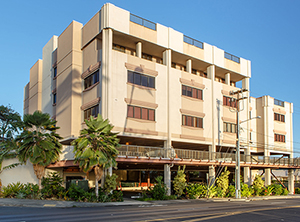Treatment options for
Kidney Failure
What is Kidney Dialysis?
Hemodialysis is a treatment that does some of the things done by healthy kidneys. It is needed when your own kidneys can no longer take care of your body’s needs
When is Hemodialysis Needed?
You need dialysis when you develop end stage kidney failure — usually by the time you lose about 85 to 90 percent of your kidney function. You may have symptoms such as nausea, vomiting, swelling and fatigue. However, even if you don’t have these symptoms yet, you can still have a high level of wastes in your blood that may be toxic to your body. Your doctor is the best person to tell you when you should start dialysis.
What Does Hemodialysis Do?
Like healthy kidneys, dialysis keeps your body in balance. Hemodialysis does the following:
- Removes waste, salt and extra water to prevent them from building up in the body
- Keeps a safe level of certain chemicals in your blood, such as potassium, sodium and bicarbonate
- Helps to control blood pressure
How Long Do Hemodialysis Treatments Last?
Usually, each hemodialysis treatment lasts about four hours and is done three times per week.
The time needed for your dialysis depends on:
- How well your kidneys work
- How much fluid weight you gain between treatments
- How much waste you have in your body
- Your size
- The type of artificial kidney used
Where is Hemodialysis Done?
Dialysis can be done in a dialysis unit or at home. You and your doctor will decide which place is best, based on your medical condition and preference.

Can Progression Be Prevented with Proper Chronic Kidney Disease Treatment?
Most likely. The earlier kidney disease is detected, the better the chance of slowing or stopping its progression. Early detection & treatment can often slow or stop chronic kidney disease. How well your treatment can achieve this goal depends on:
- Your stage of chronic kidney disease when you start treatment. The earlier you start, the better you are likely to do.
- How carefully you follow your treatment plan. Learn all you can about chronic kidney disease and its treatment, and make sure to follow all the steps of your treatment faithfully.
- The cause of your kidney disease. Some kidney diseases are more difficult to control.
© 2017 National Kidney Foundation. All rights reserved. This material does not constitute medical advice. It is intended for informational purposes only. Please consult a physician for specific treatment recommendations.
